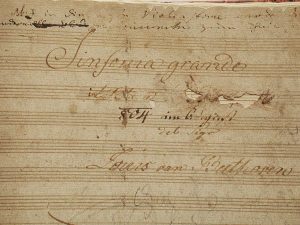On Joy, Freedom, and Walls (An die Freude, Freiheit, und Waende)
On Christmas Day, 1989, Leonard Bernstein conducted a concert in Berlin – on the program was Ludwig van Beethoven‘s Ninth Symphony. Germany was celebrating its reunification – the Berlin Wall had been torn down only a month earlier. The text of the “Ode to Joy” was altered – “Freude” (joy) was replaced with “Freiheit” (freedom). Some scholars argue that the original text indeed used the word “Freiheit”, and that the poet changed it out of fear of persecution.
Beethoven’s 9th symphony is a marvel. It is a symbol of the strength of the human spirit in the face of evil, always looking towards beauty, always dreaming of a better world. It’s no surprise that it is the Anthem of the European Union. It’s a symbol of the hope for human unity:
[Joy’s / Freedom’s] magic brings together what old traditions has unjustly divided. All men shall be as brothers where your gentle wings hover. Be embraced, you millions; this kiss is for the whole world!
Thirty years after the Berlin Wall was torn down and Germany was celebrating its unity, we Americans are building a new wall and actively dividing ourselves from our fellow humans. It is disgusting. We must do whatever we can to stop this. I am not a warrior, I am a musician; I cannot fight with weapons, so I will fight with Beethoven.


Recent Comments